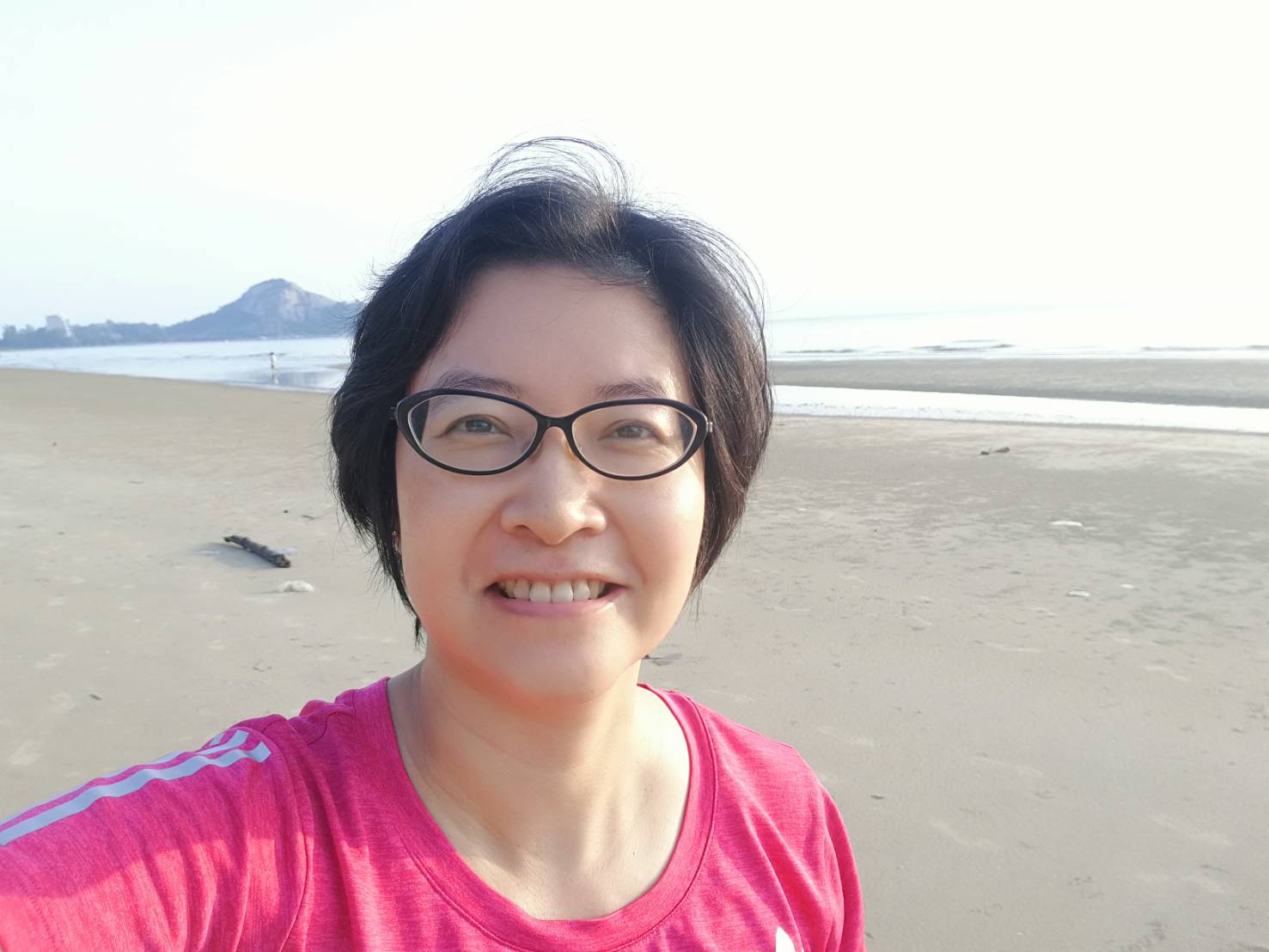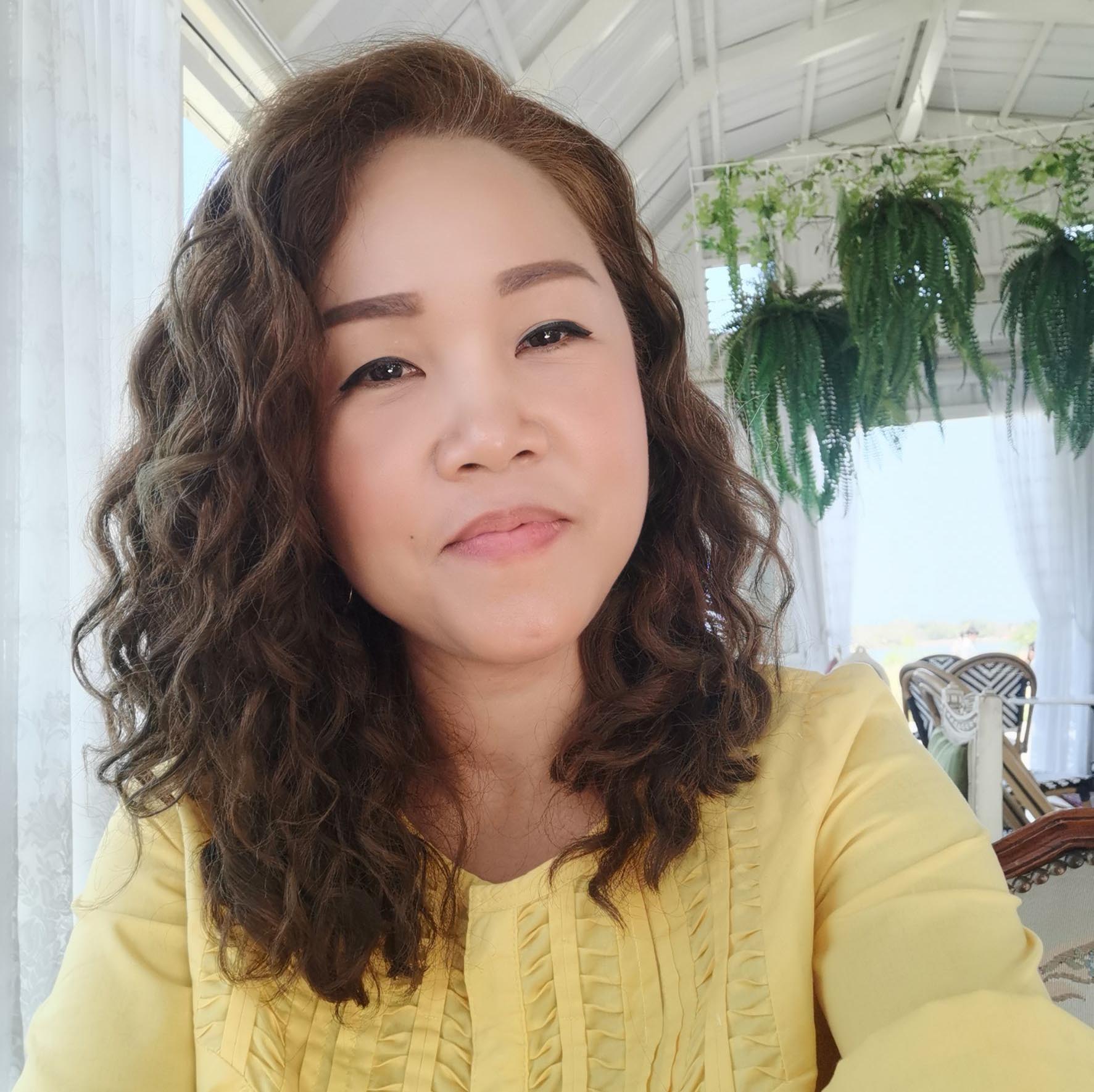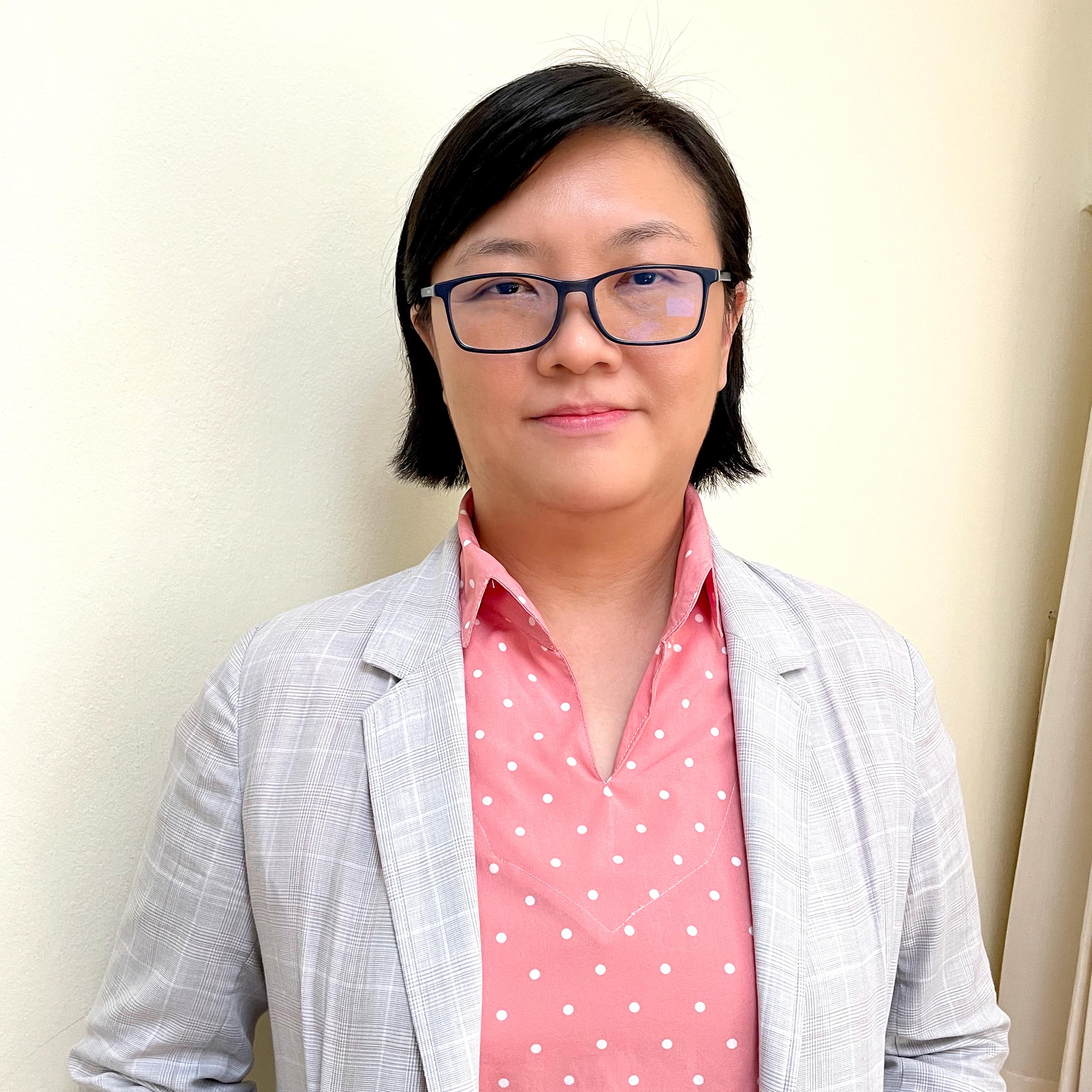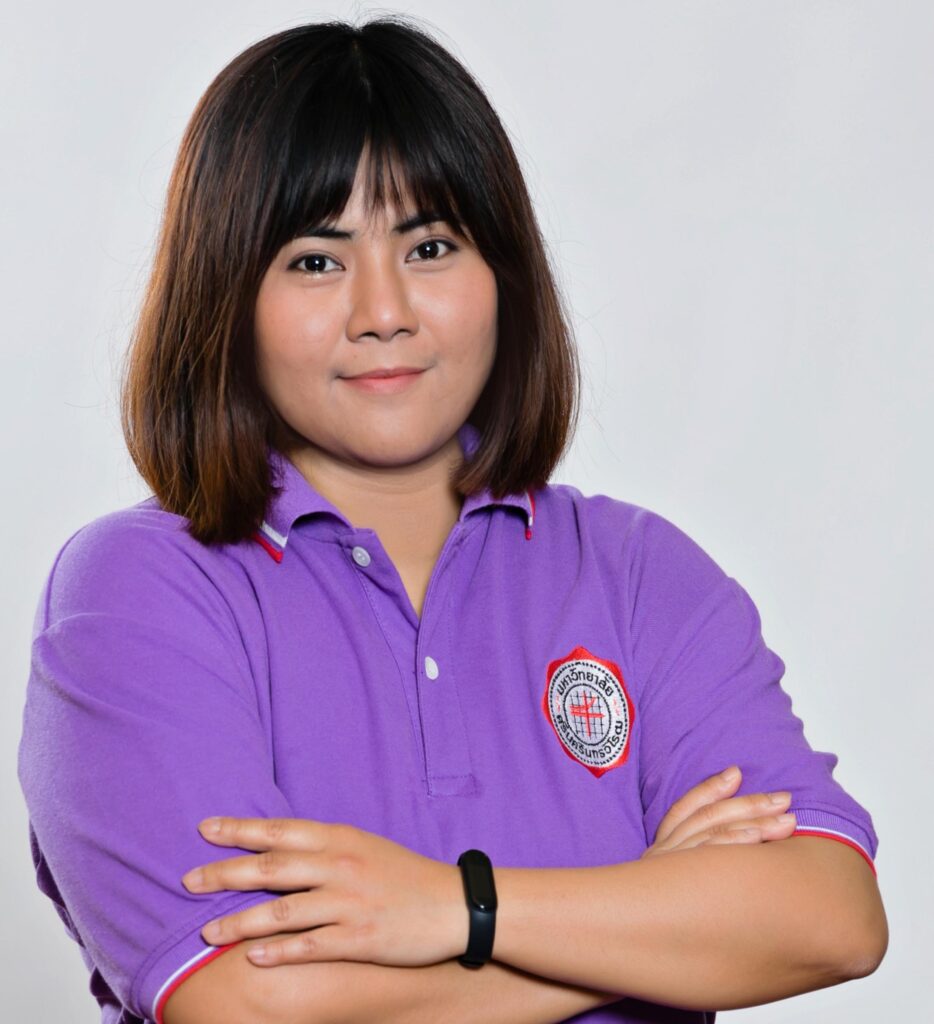Kulwadee Engkapunpong: Confidence can be improved by learning and doing

I began participating in the project after being invited by the team leader of SWITCH SEA. At first I was worried that I would not be able to participate. I spent a lot of my time working on projects, and I didn’t deal with people very often, which made me hesitant to give presentations and interact with others.
In the end, I decided to give it a shot. I wanted to change myself and I needed to do something different to what I had already been doing. I was always a diligent person, but I hadn’t progressed in my career because I wasn’t able to really put my talents to good use.
I first focused on practical skills, by studying Network Security and Network Tools. The program selections, such as CompTIA PenTest+ Ethical Hacking and the Complete Ethical Hacking Course: Beginner to Advanced all provided me with a fresh perspective on security systems.
There were many topics I had heard about but hadn’t investigated! These courses provided me with more knowledge, and the CompTIA Project+ course provided me with a deeper understanding of the hierarchies of project management, which I was able to apply to my current project.
The programs also boosted by confidence and that pushed me towards studying more. I am now comfortable giving presentations and engaging in conversations. Last year, I was in charge of a project which required collaboration with 45 hospitals. I needed to coordinate presentation of system procedures and work with hospital staff to integrate it into their system. I worked with people across various departments, without any problems. I would like to express my gratitude to SWITCH SEA for motivating me, encouraging me, and giving me the confidence I needed to complete my job responsibilities.
Ultimately I learned that the most significant outcome from my learning was the boost in confidence, along with a newfound eagerness to learn and express myself. Motivating others to do more for themselves and society was another benefit.
Busagarin Nitiwong: My turning point at 50

I learned about the SWITCH SEA project through a friend. Individual and group training, as well as social events were provided.
I was working as a university lecturer at the time, and I informed my supervisor about the project invitation.
As a part of the project, I chose to attend the SANS Institute’s “Law of Data Security and Investigation” course as well as the APNIC Academy’s “Cybersecurity Awareness,” “Introduction to Cybersecurity,” “Network Security Fundamentals” and “Policy Development Process” courses, to name a few.
The mentoring sessions also went very well. In Thailand, it’s very difficult to find a specialist in both law and cyber security. Studying these areas was quite challenging for me. The material from the SANS Institute proved particularly helpful.
I believe my personal exposure and recognition have improved. I decided to resign from my teaching position in order to dedicate more time to career development. Resigning was a very big step for me. I was not satisfied with the teaching position I had held for seven years. I have been inspired by the idea of career change. I still need to take some time to gain more current knowledge and hands-on experience in network security and cybersecurity.
Fortunately the APNIC Academy offers a variety of online courses, webinars, and labs to assist me in my new journey. This experience has been thrilling, enjoyable, and exhausting all at the same time. I am eager to complete my training in order to improve my chances of finding a new career that is suitable for me to support my family.
Thitima Paratham: Changing my learning style

Around January 2021, I received an e-mail from the APNIC Foundation and the Thailand project coordinator. When I realized that participants could choose the best course for them, I decided to join the project.
After registering and being accepted into the program, I chose to enroll in courses that would be extremely beneficial to my work. I concentrated on security and virtual machine courses, as well as system operation courses.
I enrolled in APNIC Academy courses on DNS and DNSSEC, a well as Vnohow Thailand’s CompTIA Cloud Essential+ Certification, and SoSecure Thailand’s Cybersecurity Fundamentals. I have since discovered that my technical and research abilities have greatly improved.
I discovered three key things about myself in this project:
- The project’s objectives of helping women and LGBTQI+ people is what piqued my interest. When I became aware that there were organizations supporting women and LGBTQI+ people by promoting knowledge of technical skills, that’s what actually made me want to get involved
- Gaining knowledge in areas outside my core areas of responsibility helped me understand the work of other team members and led to better team coordination.
- My learning style evolved. I used to only focus on in-depth details of technical knowledge to solve problems, but now I can deal with problems on-the-fly thanks to new perspectives.
I have been in the networking field for over 20 years, and held challenging jobs. At the start of my career, I wanted to learn, have fun, and always accomplish the task. As time passed, my network engineer friends, who were all women of the same generation, moved to other departments. Some of them even changed professions. Most of the time, their reasoning was that female network engineers rarely advance in this field, and she could see why.
Later, I began studying for a master’s degree in finance with the intention of changing careers once I graduated. But, thanks to the love and bonds formed through my network engineering work, I am still working in this field. While I was finishing my master’s degree, the company was undergoing a large network migration, and I was designated as the key person in charge of the operation. So, I decided to keep working until it was successful. I continue to believe that women and LGBTQI+ people face barriers in this field.
I was given the opportunity to choose a new body of knowledge after joining the SWITCH SEA project. It satisfied my curiosity about other technologies. I found that it was not too difficult to learn new things at this point in my career. There has been a significant shift in my learning style and behavior.
In the past, I only learned to use articles or best practices in a professional context. I never considered the importance of documenting my learning. I have to admit that it was difficult for me because I wasn’t used to it. It took some time for me to figure out how to do this.
And once I have mastered this, I’ll be able to create a more systematic learning environment.
Chidchanok Choksuchat: The new challenges of an expanding research network

I learned about the SWITCH-SEA project from a professor’s Facebook post. I filled out the form, then I forgot about it!
Dr Photchanan Ratanajaipan (the National Coordinator for Thailand) reached out to me and I was very surprised.
SWITCH SEA helped me upskill in four key areas: Negotiating, public speaking, understanding the APNIC network and infrastructure, and a specialized course in AI. The most useful lessons were on speaking and negotiation. I am delighted that I now feel comfortable addressing my company and even national audiences. Part of this came from the mentoring sessions from Graciela Selaimen. She is a professional coach who helped empower SWITCH SEA participants. I found her advice incredibly helpful.
The SWITCH SEA project also helped cover the costs of my proposed study project, “Prototype of Internet of Things Data Governance Framework to Encourage Healthcare Data Quality.” I dreamed of being in management in the digital transformation field, and having a strong research network as a study environments. The APNIC Foundation’s SWITCH-SEA project provided everything I could wish for. In the mornings, I studied, and on weekends, I completed my homework. I began to step outside of my comfort zone and realized that progress could not be made unless I changed myself.
I was given the opportunity to share my knowledge with others, both through the university’s academic service project and through the subjects I taught to large number of locals and students. Furthermore, my team was successful in submitting an oral presentation at an international conference whose proceedings were indexed by the IEEE.
I was also given the opportunity to extend my research connections. I took an IBM AI specialization course and was blown away by the AI cloud tool. When I approached IBM about collaborating on teaching and research, they accepted and assisted our team, which included my undergraduate and postgraduate students.
I later made a proposal to the Faculty of Medicine about extending their research technology using AI. The idea involved integrating medical technology and data science. In order to make the pitch, I used the valuable advice from two mentor sessions (Graciela Selaimen and Chaya Limchitti), our project friends, and the AI skills from the upskill courses.
The Digital Government Development Agency (DGA) also decided to organize a focus group to promote education, research, and the development of innovation and technology in the South as part of the DGA’s drive for digital local development. Local people’s lives will be able to extend service innovations to meet the needs of the government sector by providing high-quality digital services to the people’s sector. I was invited to serve as a moderator for this event. I believe this will be my new challenge in the coming year, with good opportunities resulting from the SWITCH-SEA project.
I am incredibly grateful for all this help and all the assistance I have received from the SWITCH SEA project. It helped me get new opportunities, and I was overwhelmed that I also received that research support.
Tunyaton Pongchalerm: This opportunity boosted my visibility at work

A friend recommended that I apply for the SWITCH SEA project after receiving an email about it. Because this project is open to women and LGBTIQ+ people, I discussed applying for it with my supervisor, who agreed it was a good idea.
The nature of my job at a computer system centre means that the majority of the employees are men. Clients frequently believe that women working in computer systems and networks cannot perform as well as men. Being chosen for the program was a fantastic opportunity me.
I received financial assistance in order to attend courses to help prepare for changes in my work. I also received funding for research and was able to attend self-improvement mentoring sessions that I had never before had the opportunity to attend. All of these opportunities contributed to my increased professional visibility and recognition.
I’m always improving, which is exactly what I wanted. Because the cost of technical training is quite high, my organization has a limited budget to send employees to training programs each year, so we have to take turns. This opportunity allowed me to select the training courses where I wanted to improve my skills, and the options are constantly evolving in accordance with the training plan.
I received financial assistance to cover some costs of submitting research papers to academic conferences. Because my organization only supports a portion of the research funding, this helped to reduce my expenses. I also became more self-assured in my work as a result of the knowledge gained through technical training.
I have received opportunities and recognition from colleagues and clients. I am more conscientious as a result of the improved work and knowledge. I used to work without passion, but once I started working on the project, I was encouraged to stay focused and diligent. Now that I am well-known within the organization, I must read books, keep up with technology, and I am always on the lookout for new information.
Opportunity and acceptance were the two most significant changes in my life – my department posted congratulatory messages on social media when I was confirmed as a participant.
I previously just worked in the background as a computer and network administrator, and wasn’t noticed much. My ideas didn’t get shared. But now I am well known and sought after in the organization. At the time, I was preparing to do some work in order to advance in my career. My professional development was focused on network security. I identified training courses that I believed would be most beneficial to me and applied for them with the project’s assistance. I was starting to look into network and system security in my organization. Because I had to work full-time, attend training courses, and conduct research all at the same time, I had to give everything my all. However, after listening to the self-development mentoring topic, I realized I was putting too much pressure on myself. I needed to let go of some things so that I didn’t overburden myself.
After completing my research, I presented it as a poster at a national academic conference, where I won the best paper award among the institute’s poster research group. The SWITCH SEA project covered the costs of research consulting, graphic design, and application fees for the exhibition. It gave me more confidence to work because of the results and technical knowledge that have been continuously developed throughout the project period.
At meetings, I now dare to express my technical and other opinions. I’ve gained more respect from my colleagues, and I’ve noticed a positive shift in the attitudes of service recipients toward women in this field. I want to be a part of this group so that female and LGBTIQ+ technicians can become more involved and have their skills recognized.


